
Episode 4 in the Strong Towns Curbside Chat series, this video illustrates the potential to redevelop aging cities, along with the dangers of sprawl.
View this complete post...







John Hennessy III,
P.E.






Episode 4 in the Strong Towns Curbside Chat series, this video illustrates the potential to redevelop aging cities, along with the dangers of sprawl.
View this complete post...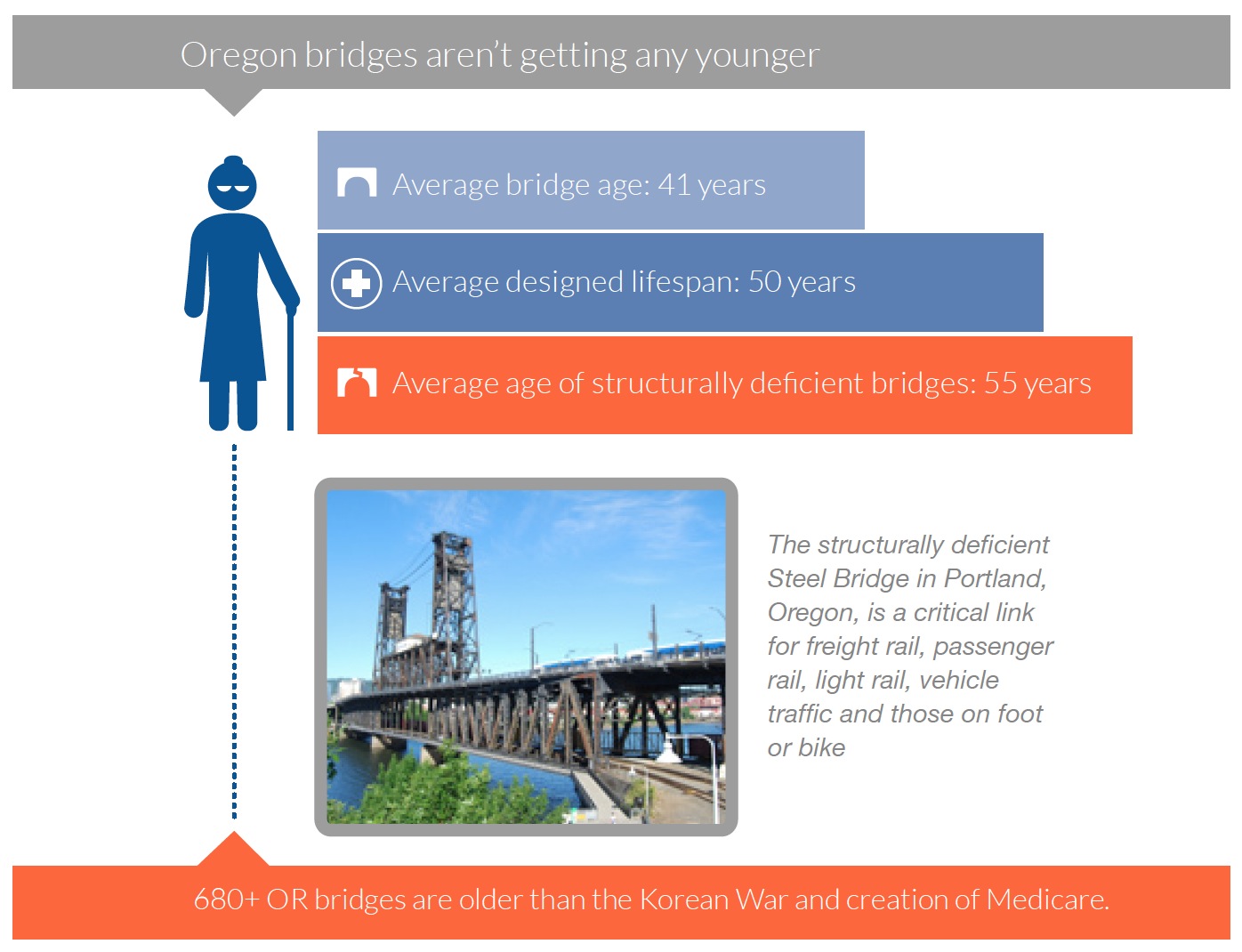
TRANSPORTATION FOR AMERICA
The average age of these sub-par bridges is 55 years — over the typical design life of 50 years and 14 years older than the average age of all Oregon bridges (41 years old). More than one in twelve Oregon bridges were built before 1948 — which means more than 680 bridges are older than the Korean War and creation of Medicare.

Rosabeth Moss Kanter holds the Ernest L. Arbuckle Professorship at Harvard Business School, where she specializes in strategy, innovation, and leadership for change. Professor Kanter recently published MOVE: Putting America’s Infrastructure Back in the Lead. In Move, Kanter visits cities and states across the country to tackle our challenges―and reveal solutions―on the roads and rails, and in our cities, skies, and the halls of Washington, D.C.
“I devoted nearly two years to in-depth investigation from the point of view of users of our systems, and America’s position in the world, and concluded that if we don’t get moving we’re going to fall farther behind the rest of the world, and if we’re not strong at home we can’t be strong as world leaders.”
View this complete post...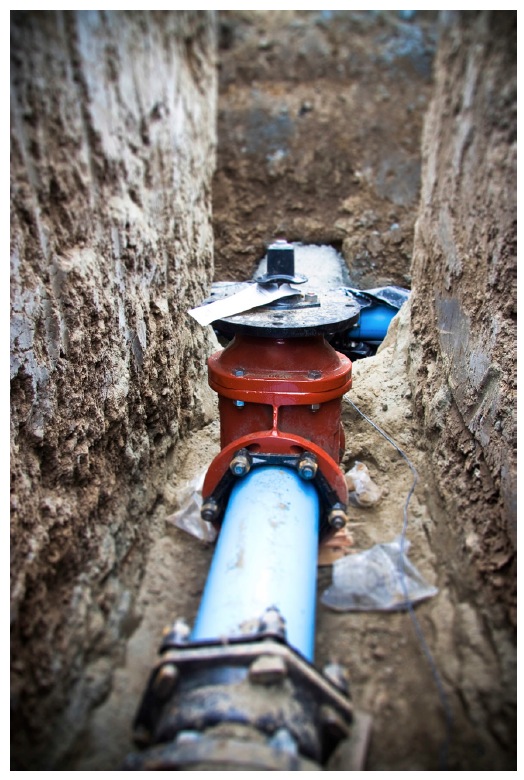
UCLA LUSKIN CENTER FOR INNOVATION
Despite the essential role water plays in Los Angeles County, surprisingly little is known about our community water systems. Community water systems are the fundamental building blocks of California’s water supply network. These systems are responsible for providing households, businesses, and governments with a reliable supply of clean water at a reasonable price. They are on the front lines of adapting to drought and climate change. They manage lifeline programs for the County’s many low-income households. These systems are the portals through which federal, state, and regional officials implement water policies supporting water supply reliability, conservation, efficiency, affordability, environmental protection, and public health.
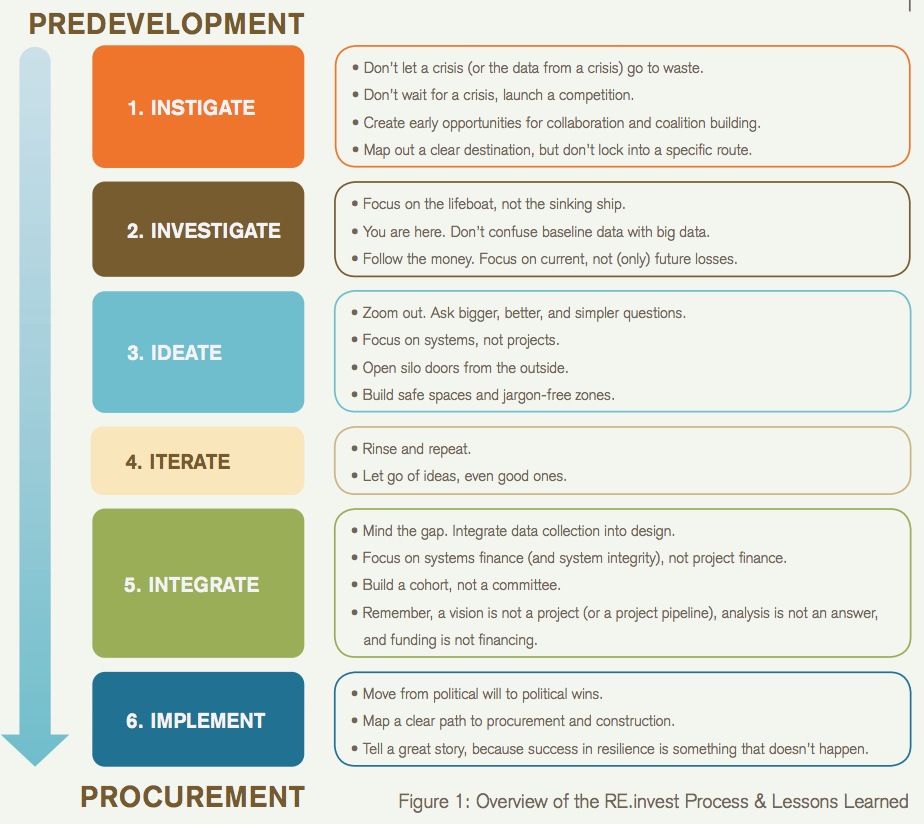
THE RE:INVEST INITIATIVE
This report is designed to inspire a wide range of readers interested in addressing the challenge of creating a robust pipeline of investable resilient infrastructure projects. It captures how RE.invest reimagined the predevelopment process for resilient infrastructure to integrate early design and financing decisions and help cities make the leap from crafting a vision for resilience to generating a set of financeable large-scale projects.
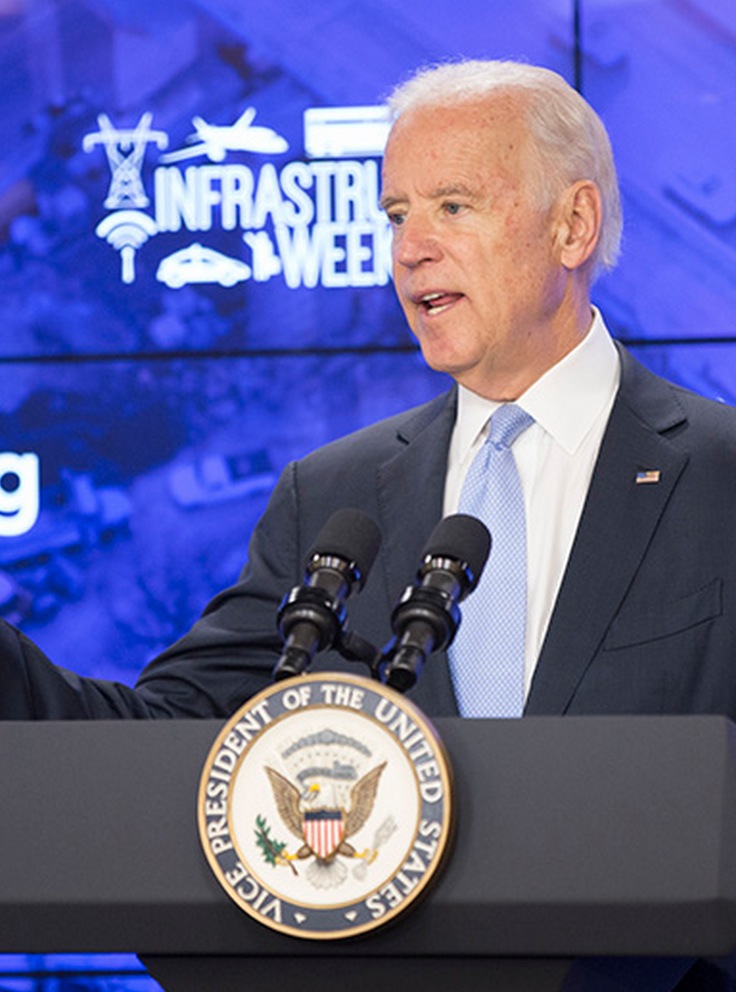
Most importantly, Infrastructure Week is about spreading awareness and garnering support from citizens and communities around the country. Even if you can’t participate in the events, you can get the word out by sharing readymade content –infographics, posters and neatly packaged tweets are just a few of the “sharables” provided by the Infrastructure Week Steering Committee.
View this complete post...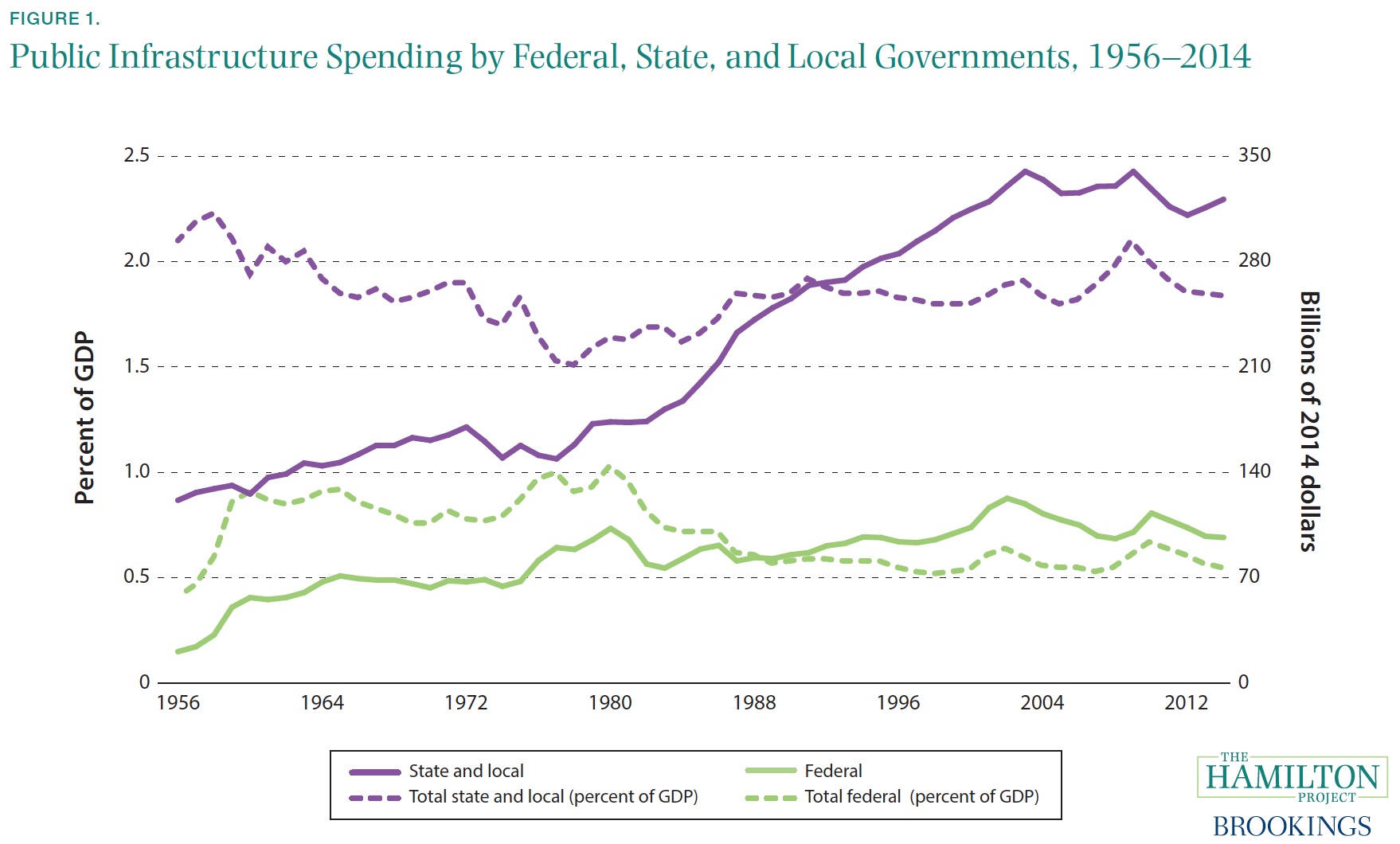
THE HAMILTON PROJECT
Most Americans feel the burden of a weakening transportation infrastructure. The evidence is right in front of us: in poor road and bridge conditions, aging airports and seaports, weak passenger rail service, and inadequate public transportation. Most economists and government leaders agree on the merits of upgrading these systems to improve productivity, global competitiveness, and job creation. Most also agree that our nation would benefit from federal action on infrastructure. There are disagreements, however, on which investments to make and how to pay for them, and these disagreements have led to counterproductive inaction.
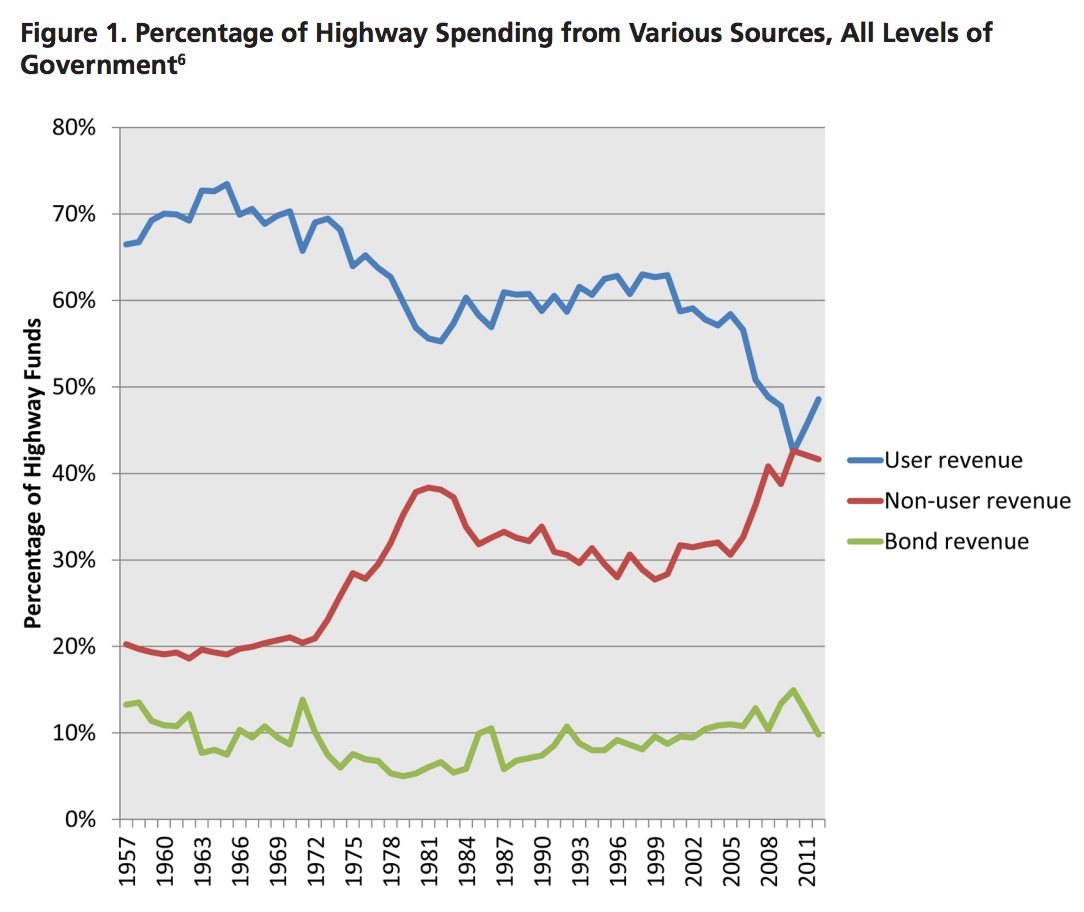
FRONTIER GROUP
U.S. PIRG EDUCATION FUND
Many Americans believe that drivers pay the full cost of the roads they use through gas taxes and other user fees. That has never been true, and it is less true now than at any other point in modern times. Today, general taxes paid by all taxpayers cover nearly as much of the cost of building and maintaining highways as the gas tax and other fees paid by drivers. The purchasing power of gasoline taxes has declined as a result of inflation, improved vehicle fuel economy, and the recent stagnation in driving. As a result, so-called “user fees” cover a shrinking share of transportation costs.
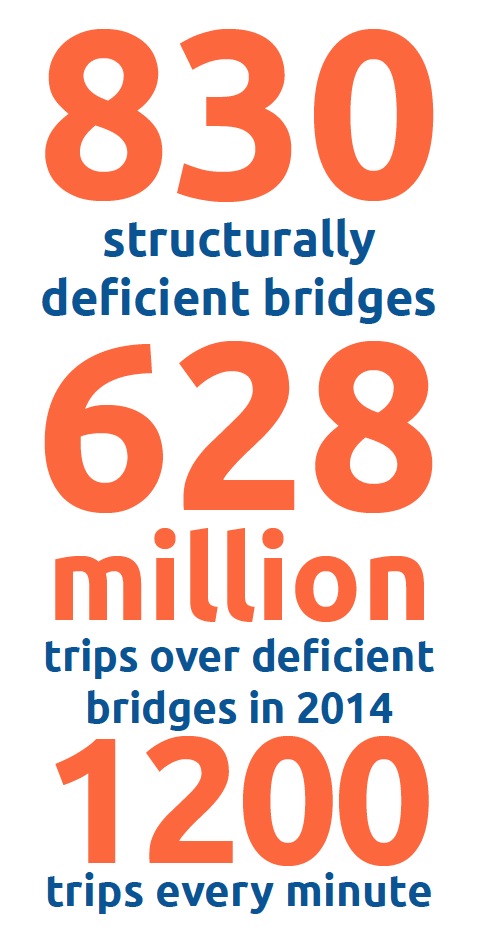
TRANSPORTATION FOR AMERICA
The average age of these sub-par bridges is 66 years — well over the typical design life of 50 years and nearly double the average age of all Minnesota bridges (35 years old). More than one in ten Minnesota bridges were built before 1948 — which means more than 1,300 bridges are older than the Korean War and creation of Medicare…Minnesota drivers collectively took close to 628 million trips over deficient bridges in 2014. That’s more than 1.7 million trips per day or almost 1,200 trips every minute taken over deficient Minnesota bridges in 2014.
Follow InfrastructureUSA
Video, stills and tales. Share images of the Infra in your community that demands attention. Post your ideas about national Infra issues. Go ahead. Show Us Your Infra! Upload and instantly share your message.
Is the administration moving fast enough on Infra issues? Are Americans prepared to pay more taxes for repairs? Should job creation be the guiding determination? Vote now!
What do the experts think? This is where the nation's public policy organizations, trade associations and think tanks weigh in with analysis on Infra issues. Tell them what you think. Ask questions. Share a different view.
The Infra Blog offers cutting edge perspective on a broad spectrum of Infra topics. Frequent updates and provocative posts highlight hot button topics -- essential ingredients of a national Infra dialogue.
It is encouraging to finally see clear signs of federal action to support a comprehensive US infrastructure investment plan.
Now more than ever, our advocacy is needed to keep stakeholders informed and connected, and to hold politicians to their promises to finally fix our nation’s ailing infrastructure.
We have already engaged nearly 280,000 users, and hoping to add many more as interest continues to grow.
We require your support in order to rise to this occasion, to make the most of this opportunity. Please consider making a tax-deductible donation to InfrastructureUSA.org.
Steve Anderson
Managing Director
SteveAnderson@InfrastructureUSA.org
917-940-7125